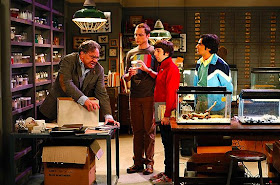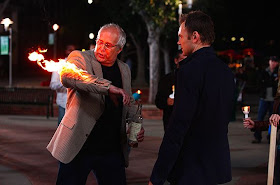 Quick thoughts on episode two of "Modern Family" coming up just as soon as I dance for my baby...
Quick thoughts on episode two of "Modern Family" coming up just as soon as I dance for my baby... The fear when a comedy does a pilot as confident and funny as the "Modern Family" debut - one that was so good it even has other, Emmy-winning comedy writers raving about it - is that the writers used up all their best jokes on the pilot, and they've got nothing left for the series.
"The Bicycle Thief," thankfully, put those fears to bed.
The three branches of the family tree were kept largely apart - and the women were kept on the sideline on top of that, playing spectator to the fatherhood theme - but that gave a chance for Jesse Tyler Ferguson, Eric Stonestreet, Ty Burrell and Ed O'Neill (and Rico Rodriguez, who plays Manny) to shine. Cameron's frustration at having to rein in his more flamboyant qualities was a particular highlight, but Phil's horror as the divorced hottie wheeled the third bike up the driveway was also hilarious, and very well set-up.
Nothing fancy or groundbreaking here - there was even another heartwarming monologue by Ed O'Neill at the end - but funny and well-executed. I'm pleased, and I'm in.
What did everybody else think?





































